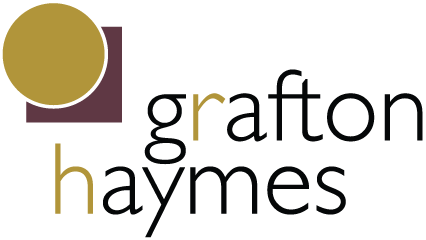Some years ago I attended an Association of Coaching conference and I was in one of the seminars, led by a person whose company was named… I can’t remember, but it was something like a classic duff 80s action movie, Red Dawn, or something equally as ghastly! Anyway, the speaker was holding forth on how they were able to transform the very existence of their clients, but was making very little mention of coaching. When she actually mentioned coaching she described it as directional coaching.
Obviously, my ears pricked up at this. Directive coaching? What on earth could she mean? Surely she wasn’t giving instructions in her coaching? Oh yes she was, and carried on to expound the impact of her directive coaching. I was amazed. This was still reasonably early on in my coaching career, but I was pretty sure coaching wasn’t about telling people what to do, giving them directives, or telling them the answer.
When she finally finished the lecture (and it was exactly that!) the floor was opened up for questions. I couldn’t resist. “I was just interested to hear your belief on what you thought the difference was between coaching and consulting?”
“Not much”, she replied.
Obviously I put as much distance between her and myself as I possibly could, metaphorically and literally! Because if a key speaker at an Association of Coaching conference didn’t know the difference, what chance was there for the audience of mainly HR, learning and development practitioners, whom we rely on to position coaching effectively in the organisations that comprise our client group?
I’d like to think in the ensuing years, people have got much clearer about the differences between coaching, consulting, training, and mentoring, but unfortunately in many of my introductory conversations with potential clients, this is seldom the case. I don’t see it as their responsibility; I see it as the responsibility of the coaching community to position ourselves much more effectively, so the world knows what coaching is, and what it isn’t.
Here’s my contribution.
I can draw a direct continuum between coaching and consulting, with ask at one end, and tell at the other. Or if you like, facilitative at one end and directive at the other. mentoring and training appearing somewhere in between. For me the essence of consulting is that they retain ownership of the solution, whereas coaching retains ownership of the process. In coaching, the essential belief is that our clients have all the solutions inside them. They might not know where they are, or how to articulate them, but they’re there!
The reason why we go to see a consultant, like a doctor or a lawyer, is that we need them to diagnose our problem, and give us a solution; a pill, or a petition! I’m sure good consultants do ask questions in the needs analysis process, but I know when I see one, I’m expecting them to give me the answer.
So a coach asks the question; a consultant tells the answer.
How does coaching differ from mentoring? For me the essential value of a mentor is that they used to be you. They’ve walked in your shoes, ideally quite recently, because if it’s some time ago that they had the experiences that you’re about to have, can they give you the best and most up-to-date advice? I don’t claim to have any expertise around this but perhaps it’s an interesting question. But advice and guidance, based on your needs and their experience, would seem to be the ideal qualification or expectations of a mentor. In my world, when we are coaching, we do not give advice or guidance. I have a friend who refuses to get liability or indemnity insurance; his argument is, he’s a coach. He refuses to give advice guidance or solutions, therefore why would he need such protective insurance? That might seem foolhardy, or professionally irresponsible, but purely at a philosophical level, it may strongly be argued that he has a point!
What about training? Here is how I would position the two of them differently. In learning and development there is the KASH model: knowledge, attitudes, skills, habits. I believe training is best suited to closing the gap in knowledge or skills. A training needs analysis is done to identify this gap, and the training programme is designed to address it in the most interactive and stimulating way possible.is it possible to change attitudes and habits in a classic two day training program? Yes it is, and I have been fortunate enough to be told that I have achieved this at times, but it is a tough ask in such a short space of time, especially when it is most likely you will never get a chance to interact with that group of participants again.
With the more long-term interaction that a coaching programme enables, allied with the intimacy a one-to-one session offers, and the more in depth focus that this creates, shifts in attitudes and habits are much easier to create.
Asking the question; telling the answer; guiding the journey; filling the gap. This is my shorthand for the essence of coaching, consulting, mentoring, and training. I hope this creates more clarity between these four roles!
There is of course a fifth support role; counselling. How does coaching differ to this? I will address this in a future post…
David Chapman is co-founder of Practical Coach Training, the UK’s fastest growing coach training organisation www.practicalcoachtraining.com and owner of Starfish L&D, delivering innovative and high impact training & coaching results www.starfishld.com
